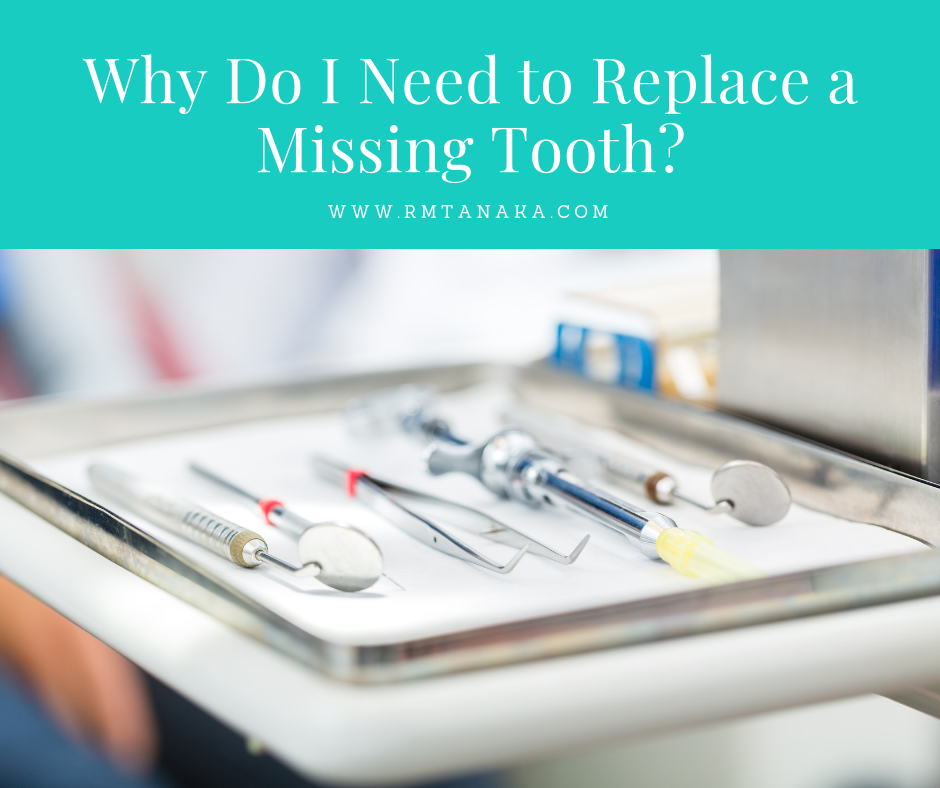Why Do I Need to Replace a Missing Tooth?

If you’ve found yourself in a situation where you’ve lost a tooth, it can feel isolating and overwhelming. But tooth loss happens more often than you may think. The American College of Prosthodontics states that over 178 million people in the United States are missing teeth.
Tooth loss can be caused by a number of things, including cancer, gum disease, wearing down from bruxism (or grinding), or trauma. Teeth must occasionally be extracted because of excessive decay or damage. And sometimes they fall out, or are knocked out, unexpectedly.
If you’ve lost a tooth, you may be wondering if it needs to be replaced. What will happen if you don’t replace the missing tooth and simply leave the gap? If the tooth isn’t in a prominent spot, it can be tempting to move on without getting the tooth replaced. But this is never a good idea.
First of all, having a missing tooth may make you feel less attractive and therefore less confident. Even if the gap is difficult for others to see, you will know it’s there and will likely feel self-conscious about it. You may not smile very often, which can prevent you from receiving all of the benefits of smiling. Smiling releases dopamine and serotonin, both of which promote feelings of relaxation and wellbeing. It releases endorphins, which can help reduce feelings of pain or stress in the body. Smiling has a profound psychological effect on you and those around you. When you share an authentic smile, it has the remarkable ability to cause others perceive you with more capability and trustworthiness. It’s been demonstrated that smiling can increase success at work and in social settings. Obscuring your smile because you are self-conscious about it can have the opposite effect, and leave you feeling depressed and isolated.
Having a missing tooth can also cause a number of health issues. The first is a process called bone resorption, which means that the jawbone around the missing tooth can begin to deteriorate over time. “Osteoclasts break down the tissue in your bones which releases the mineral and transfers the calcium from the bone tissue to the blood. This happens when a tooth is missing because the tooth’s natural roots
are no longer in the jawbone.” This is a big issue for the teeth around the open space because it can lead to increased risk of decay and even the development of gum disease.
Leaving a gap where a tooth is missing can change your face over long periods of time, giving it a sunken or misshapen look. It can also change your bite alignment, making it difficult to eat certain foods. This misalignment can also cause pain in the jaw and neck or chronic headaches. It can change the way you speak, and make it hard for others to understand you. Not replacing a missing tooth can cause more harm than good. It’s simply not worth it to avoid replacement. If you’ve lost a tooth, consult with your dentist as soon as possible to discuss your options for replacing it. If money is an issue, your dentist may be able to help you find a plan that allows you to make payments over time.
To learn more, visit https://rmtanaka.com/
Dr. Raymund Tanaka and Dr. Cynthia Leong are dedicated to helping their patients in Glendale, Arizona to achieve optimal oral health!
November 25, 2018
